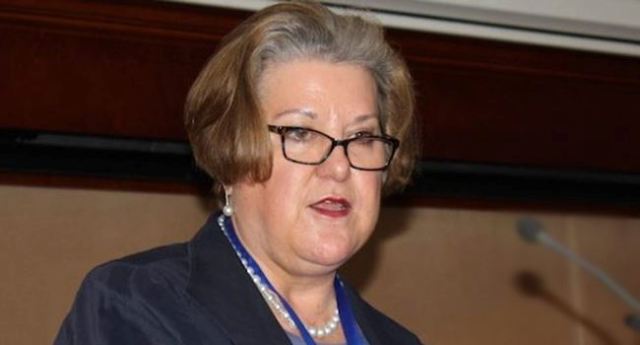The United States ambassador to Nigeria, Mrs. Mary-Berth Leonard, has given conditions under which the recent visa restriction affecting Nigeria and six other countries could be reviewed.
The others are Eritrea, Sudan, Tanzania, Kyrgyzstan and Myanmar.
The ambassador stated this yesterday when she paid a courtesy visit to the minister of labour and employment, Dr Chris Ngige, in Abuja.
Specifically, Leonard said that the visa ban will be reviewed once Nigeria improves its data intelligence such that it would be easy to investigate any immigrant wishing to visit her country and meet information-sharing systems.
Leonard explained that the immigration policy does not affect people currently resident in the US.
“I think I need to clarify something for you here. The immigrant visa ban does not affect people who are currently resident in the US. It does not cancel the status of anyone currently in the US.
“What Secretary Pompey said was something that was meant to be temporary. And it is about problems with information sharing which are investigable, achievable and resolvable and we look forward to Nigeria in a very short while being able to meet those information-sharing goals so that the decision can be reviewed.
“Students’ visas are not affected by the current visa ban,” she said.
On diversification policy, the ambassador said there was a need for Nigerians with skills to export them so that they will not be seen as illegal immigrants when they go abroad to work.
“I think for Nigeria, you have an interesting story about the diversification of your economy and the prosperity of your economy and its people. You know Nigerians are so well known at home and abroad for their industriousness.
“You know you hear about much of the activity in the informal sector. So I wonder how you think about capturing that entrepreneurial spirit and bring it into the formal sector in service and to enhance employment.
“I am happy you raised it, we talk to you on what we are doing about it. We are trying to make Nigerians have their skills so that we can even export those skills, so they will be formalized when they go out, they will not be illegal immigrants.
“We want to go out as formalized persons, whether they are carpenters, electricians, welders. So we have our schools here. We have skills acquisition centres and we are upgrading all of them so that the certificates that come out of our skills departments will be generally accepted. So we want to internationalise it.
“We are upgrading so that they can even become entrepreneurs,” she added.
In his remarks, Ngige told the envoy that 14, 000 labour inspections had been done, out of which about 3,900 child labour defaulters were detected and empowered economically.
He solicited for assistance from the US government in the rehabilitation of child labour victims.
“We call on the US to help us build schools in those areas where child labour is endemic. You can also help in setting up clinics and empowerment programmes in those localities,” Ngige said.



























































